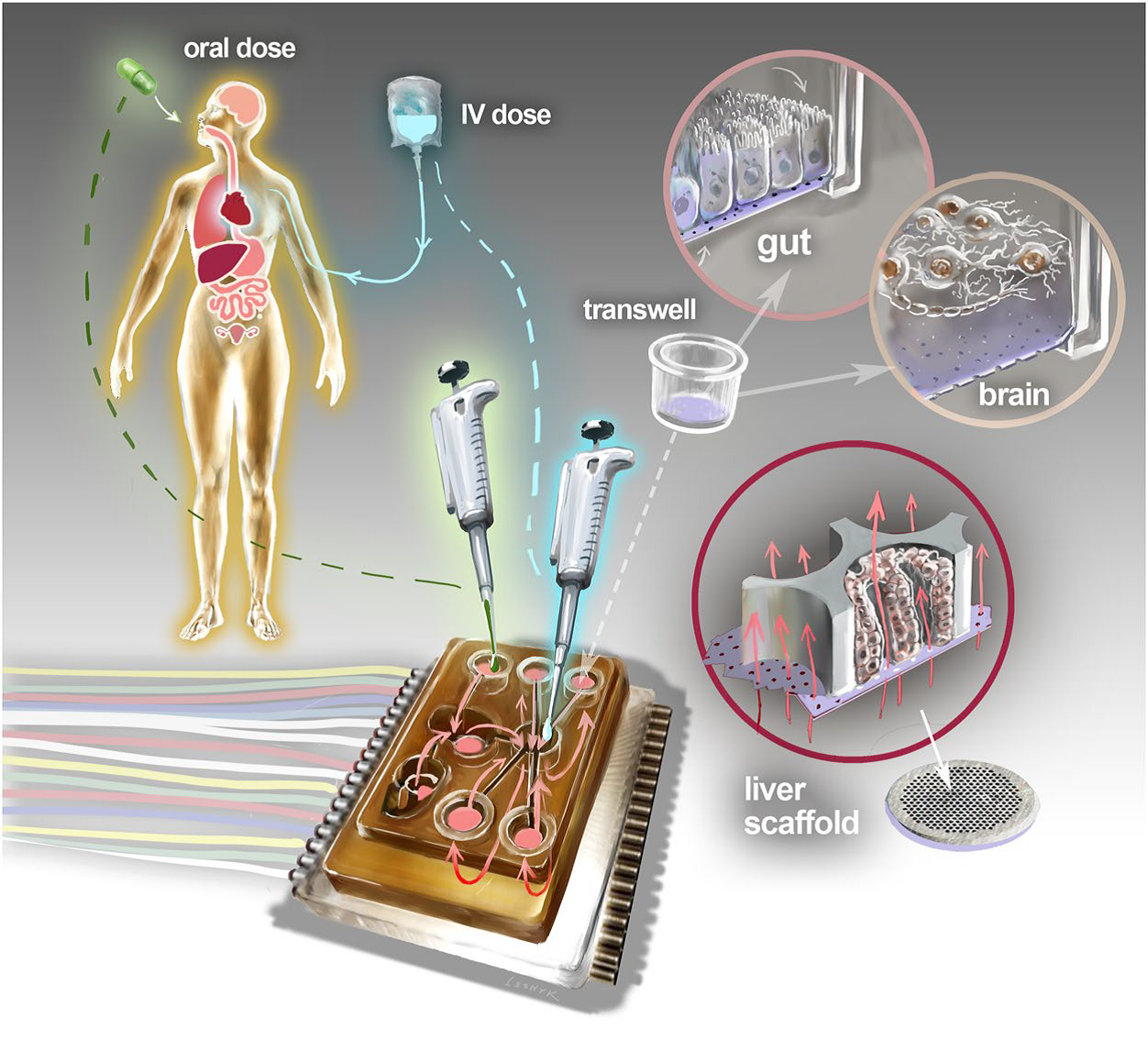New “Body-on-a-Chip” to Advance Human Drug Discovery and Testing

Study in a Sentence: Engineers recently developed a “body-on-a-chip” device that interconnects up to 10 human organ-systems modeled by microenvironments on a chip containing patient cells. These interconnected microphysiological systems can accurately replicate the interactions between various human organs and the circulation of blood, immune cells, and proteins through the human body for up to four weeks.
Healthy for Humans: This new tool can offer more human-relevant results when used to evaluate the efficacy, toxicity, and metabolism of new drug candidates before testing in humans. It can be particularly useful for assessing antibody drugs or other types of immunotherapies for humans, given that these drugs have strong potential to interact with animal immune systems and create autoimmune reactions that would not otherwise be present in human-relevant models like this body-on-a-chip. The tool can also be adopted to study other diseases, like the gut-brain interaction in Parkinson’s disease and the metastasis of tumors to different parts of the body.
Redefining Research: Unlike prior similar systems, this platform provides the first open system connecting multiple human tissue types with internal controls of fluid flow and easy access for sample retrieval or addition during experiments. The system can also be scaled up or down and reconfigured to the needs of each study.
Image Link: https://www.nature.com/articles/s41598-018-22749-0.pdf
Reference link: https://www.nature.com/articles/s41598-018-22749-0.pdf
References
- Edington CD, Chen WLK, Geishecker E, Kassis T, Soensksen LR, Bhushan BM, et al. Interconnected Microphysiological Systems for Quantitative Biology and Pharmacology Studies. Sci Rep. 2018;14;8(1):4530.








